Sales at independent booksellers in the holiday period were mixed, but even the indies with positive financial results for the year had to scramble and remake their stores, in some ways temporarily but in other ways permanently. They had to adapt to new kinds of sales, marketing, and events and new kinds of customers with different expectations--and the loss of some longtime, profitable sales channels. The constant shifting and reinvention and "working harder to earn less," as some have said, has taken its toll. Still, with vaccinations beginning, a better sense of what to expect during these difficult times and the likelihood of more effective leadership fighting the pandemic, many booksellers are optimistic--or trying to be--about the new year.
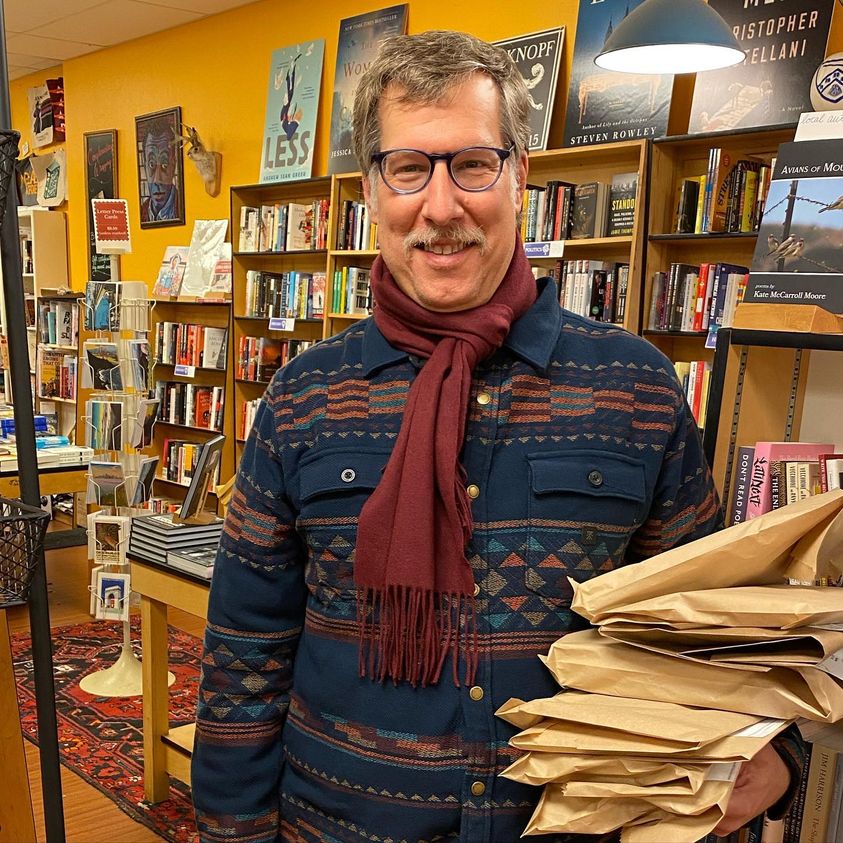 |
| Michael Barnard, Rakestraw Books |
Rakestraw Books in Danville, Calif., had "a good season even with all the challenges," owner Michael Barnard reported. "Sales started off strong and remained so throughout November and December." Because the store didn't expand capacity numbers in the fall, it wasn't affected by greater limitations imposed last month, and "customers were for the most part patient and enthusiastically supportive." Web business was "up dramatically, and, more than anything, made up the increase we saw in both November and December."
Supply chain disruption affected some publishers and titles more than others, he continued, but the store was able to obtain most books it needed, sometimes from other retailers, and 95% of all orders it shipped in November and December arrived in time for Christmas. And HarperOne "saved Christmas Eve by coming through with 48 copies of The Boy, the Mole, the Fox and the Horse."
As for 2021, Barnard said he believes "we're in for continued challenges--possible harder shelter-in-place measures, community grieving, and the slowness of the vaccinations--but I am excited for some great new books and the pleasure of selling them."
---
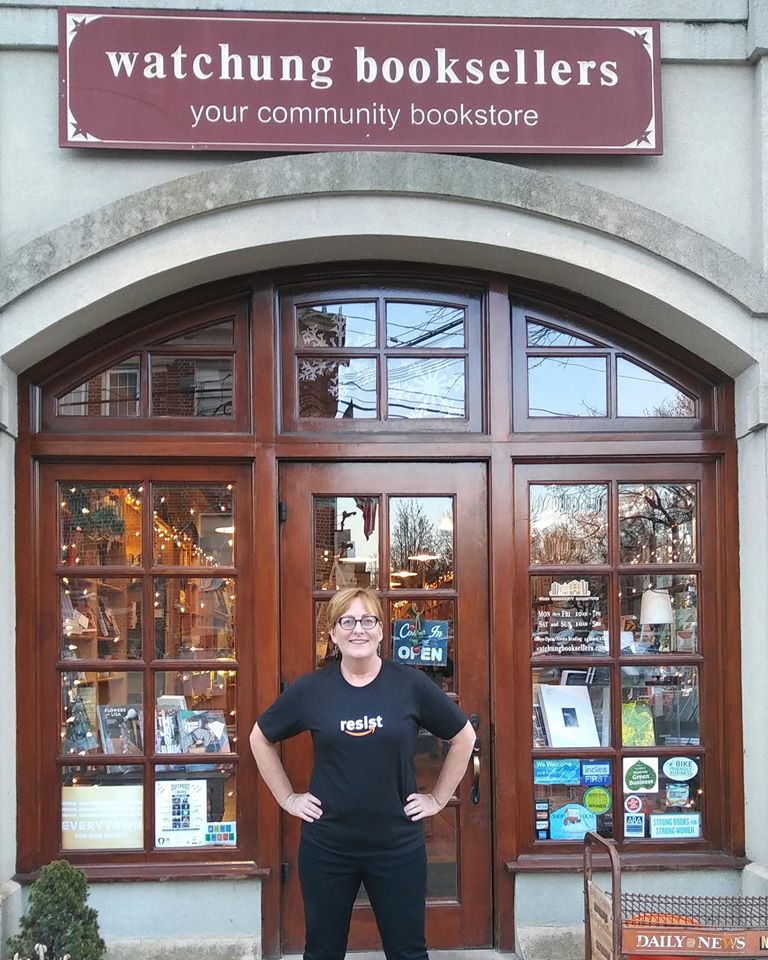 |
| Margot Sage-EL at Watchung Booksellers |
At Watchung Booksellers, Montclair, N.J., sales for 2020 were down 3% compared to 2019, so financially the store is relatively healthy, but "the changes here kept our heads spinning," owner Margot Sage-EL said.
Online sales at Watchung Booksellers went from 1.7% of total sales in 2019 to 30% in 2020 (and while the store was closed to the public from March through June, online sales accounted for 60% of all sales). "We went from personal service/curated selection to being online order processors of any book ever published. In fact, we were running two full-time businesses with reduced staff! [Two-thirds of senior booksellers were out for pandemic-related reasons.] Supply issues, while expected, became harder to handle with so many online sales. We had to manipulate the website so people could just order what we had in stock, which changed daily and was not up-to-date as we were grossly behind in receiving. Shop early/ship local worked! Mid-November to mid-December, we were working from 7 a.m. till midnight, seven days a week (until shipping out finally stopped). Our usual fun weeks at the end piddled to a slow slog as we could only let in five people at a time. We were down $30,000 in December. So, needless to say, and we said it many times, we were exhausted. For the first time in 25 years, we closed December 31 to January 3 to rest and regroup, and we'll take two days for inventory January 4-5."
Sage-EL praised the American Booksellers Association's marketing campaigns promoting indie bookstores and its fine-tuning of IndieCommerce. Still, the big gain in new online customers accustomed to Amazon came with a toll: "These were people who have HIGH consumer expectations and no understanding that there were human beings behind the digitized website, and that publishers and shipping companies were compromised," Sage-EL said. "So we went from extreme highs from the gratitude of our regulars for keeping them in books to the condescending scorn of digital shoppers for our shortfalls."
The biggest losses during 2020 involved school book fairs, school author visits and school orders, which led to a 20%-50% decrease in children's book sales. The store's usual busy schedule of in-store events and offsite author talks came to "a grinding halt, but we were able to develop a fairly steady program of virtual book talks through Crowdcast," Sage-EL noted. "We didn't have access to big names, since those seemed to be more controlled by publishers or a few big-name bookstores, but we were able to offer our local authors and special interest authors a very nice platform. The sales are not comparable to in-store events where people can personally connect with an author through a signed copy, but the reach was wider for each event and sales were solid for new releases."
During the year, new releases in fiction and nonfiction rose 43% each, dominating sales, and sales of books concerning racial issues were up 1,000%. Nature, gardening and cooking, classics, sci-fi and adult graphic novels also had strong sales, while paperback fiction, history and poetry were flat.
As for the new year, Sage-EL said that 2021 is at least "a year where we are more aware and cautious of what is ahead of us, and can plan accordingly." The store projects that 25%-30% of sales will be online, which "needs to be managed better because it takes too many steps and too many people." She wants to hire some "tech-savvy, order-processing people to handle this part. We need to relieve our few senior booksellers from the online process to concentrate on marketing, buying, organizing."
She added that last year, the store "let the orders run the show." This year, by contrast, "we need to get in front and make our recommendations stronger through the website, our newsletter and social media. We already know that we are great at personal customer service and curation, and we can handle the fewer people that actually come in to browse. But we need to control the narrative, so to speak, of our online business. We have to get our personality through. There has to be a reason why people come to us, not just because of anti-Amazon sentiment."
---
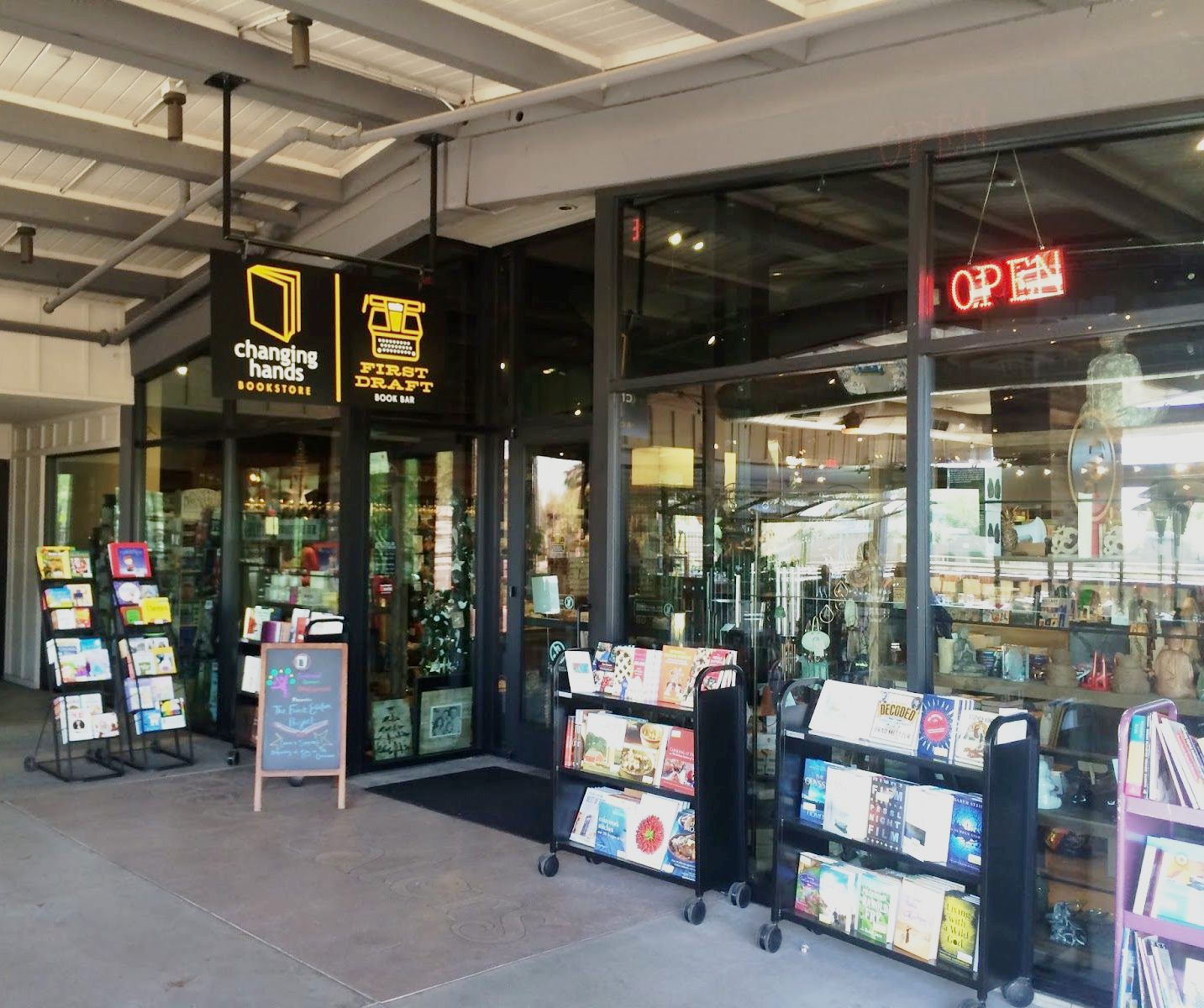 At Changing Hands, Tempe and Phoenix, Ariz., holiday sales were up compared to the same period in 2019, according to co-owner Cindy Dach, who said, "In preparation for the holidays, we engaged in on-going strategic planning around the possibility of a second closure and supply chain issues. That led us to lean into our curated book bundles and gift boxes. These sold instore and were incredibly popular for online orders and curbside pickup. We purchased inventory in large quantities for the bundles, also knowing they would serve day-to-day inventory."
At Changing Hands, Tempe and Phoenix, Ariz., holiday sales were up compared to the same period in 2019, according to co-owner Cindy Dach, who said, "In preparation for the holidays, we engaged in on-going strategic planning around the possibility of a second closure and supply chain issues. That led us to lean into our curated book bundles and gift boxes. These sold instore and were incredibly popular for online orders and curbside pickup. We purchased inventory in large quantities for the bundles, also knowing they would serve day-to-day inventory."
Among bestselling books were A Promised Land by Barack Obama, The Vanishing Half by Brit Bennett, Hamnet by Maggie O'Farrell, Shade by Pete Souza, Untamed by Glennon Doyle, The Boy, the Mole, the Fox and the Horse by Charlie Mackesy, The Invisible Life of Addie Larue by V.E. Schwab, Oak Flat: A Fight for Sacred Land in the American West by Lauren Redniss, The Secret Lives of Church Ladies by Deesha Philyaw, What Unites Us by Dan Rather and Elliot Kirschner, The Undocumented Americans by Karla Cornejo Villavicencio (especially at Changing Hands' Phoenix store), The Body Keeps the Score: Brain, Mind, and Body in the Healing of Trauma by Bessel Van Der Kolk, M.D., and Braiding Sweetgrass by Robin Wall Kimmerer.
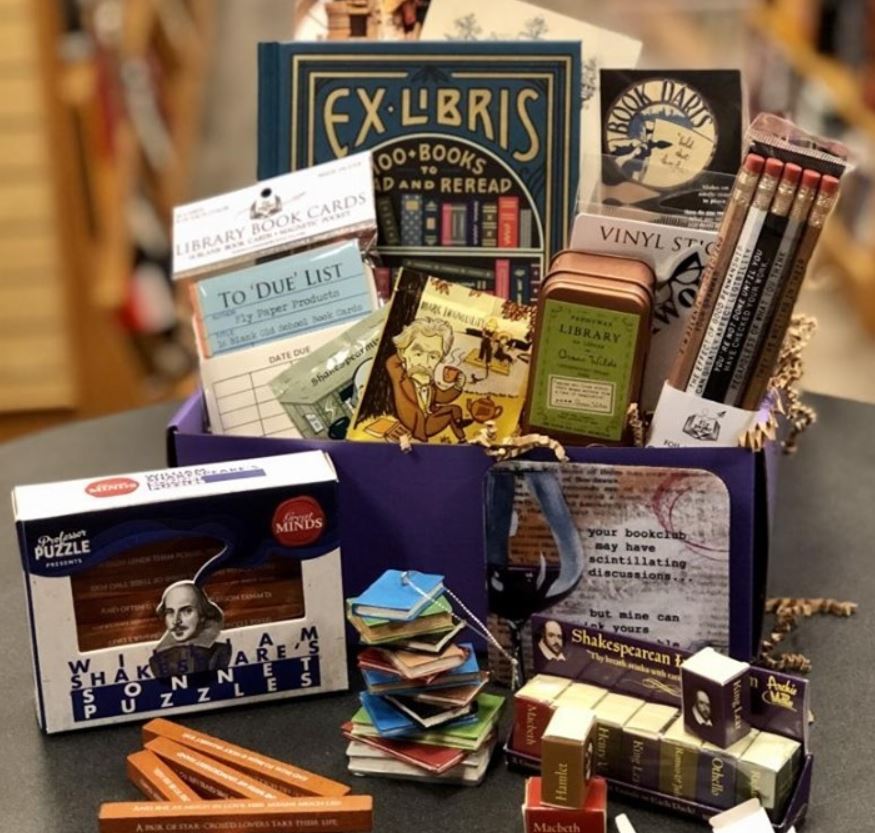 |
| The Book Lover gift box at Changing Hands |
The bestselling book bundles/gift boxes for adults were mystery, horror, historical fiction, sf/fantasy and #ownvoices. The bestselling gift adult gift boxes were the Arizona Love Gift Box, the Sonoran Gardner's Gift Box, the Book Lover Gift Box and the Art of Rest gift Box. The bestselling kids gift boxes were the Welcome Baby Gift Box, the Crafty Kids Gift Box and the Kids STEM-ulating Gift Box.
Sidelines sales were down; the most popular sidelines were cooking related, games and puzzles, garden, socks, gift boxes, journals and bath & beauty.
Dach added that "the majority of our customers were gracious and amazing. They complimented our capacity management and safety guidelines. There were, of course, some who challenged the mask-wearing mandate, and they were utterly exhausting as they challenged our patience."
Changing Hands is "optimistic about 2021," Dach continued. "From managing through crises, we become more efficient and continue to analyze our priorities and capacity. There is also wider general awareness about the value of local business in a way we haven't seen before. We plan to maintain our online business, our curated bundles alongside our in-store experience. We are setting our goals to work collaboratively with the ABA to improve our online operations."
---
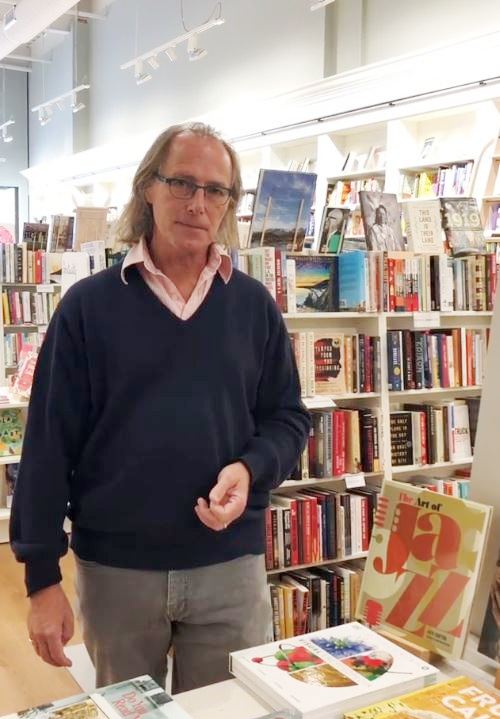 |
| John Evans at Diesel |
As was the case for many stores, at Diesel, which has locations in Brentwood and Del Mar, Calif., in-store sales during the holiday period were down because of Covid-related limitations on browsing and opening hours, but online orders were up. Still, the increase in e-commerce was not enough to offset the loss of holiday sales, co-owner John Evans said.
"Customer loyalty, passion, interest in books as gifts were all very high, making it an enjoyable experience, as usual, in the store," he added. "The logistics of maintaining safely distanced handselling (that's a tricky one) and controlling the numbers of people, were very trying. The nature of bookselling now being belabored phone calls, e-mails, and web orders, rather than more direct and immediate handsells, provided extra strain for all of us. We think readers were very satisfied with our service, responsiveness, respect, and care regarding health measures. We received many compliments about our decisions regarding protocols."
He noted that there were some popular titles that were hard to obtain, in part because "here on the West Coast we have our own particular problems getting our books in a timely fashion. Many publishers appear to still be using the Pony Express to get their books to us, making it harder to compete with online, get-the-books-in-two-days offers." He complained that online retailers had some titles that Diesel couldn't obtain, and "there is no way of explaining that to our (and their) customers."
Because of a lack of "relaxed in-store browsing time, and limited numbers of people trying to spend less time, many of the books that sold were more expected, predictable, and based on recommended lists in the media," Evans observed. "This is something some publishers may welcome, but does not seem in the interests of especially smaller publishers, nor the culture at large."
He continued, "Throughout 2020, indie booksellers have been slammed by the massive pivot toward online orders, shipping, special orders--away from in-store display and handselling. As with all aspects of our culture and economy, Covid-19 conditions have served to highlight so many of the structural faults in our systems. Faults that were always there but that are now more visible; accentuated; and, in many cases, intensified."
Evans said he hopes that in 2021 publishers follow the lead of indies who have "doubled down on our commitments to reading, to literacy, to our communities, to the importance of the written word. It would be great if publishers did the same and put their money where their mouths are, and took the rhetoric, and storytelling, they use, seriously--by supporting the immensely productive ecosystems of independent bookstores nationwide."













 At
At 


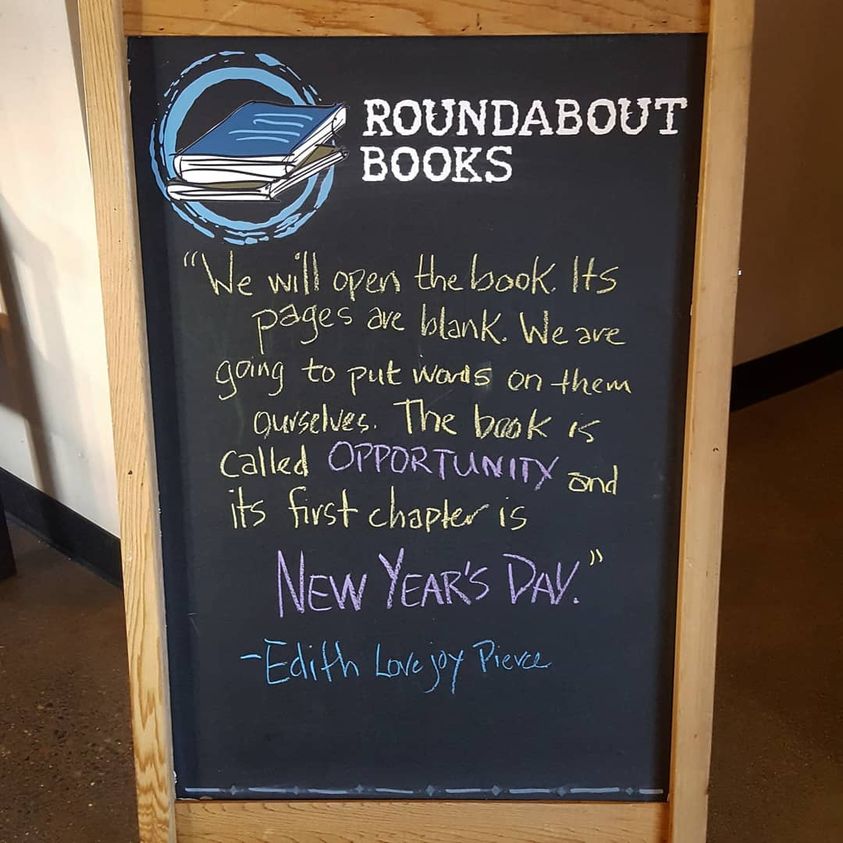
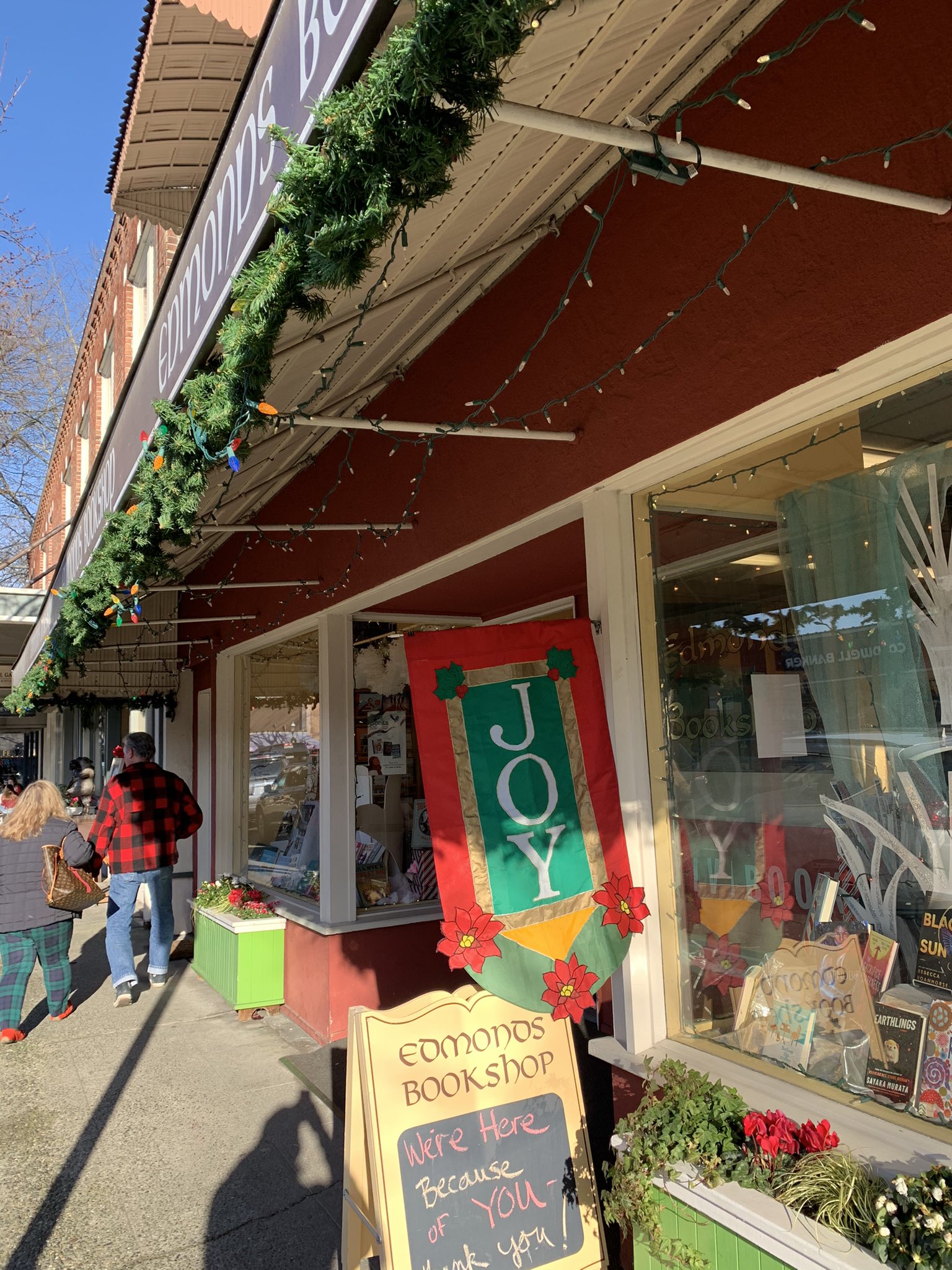
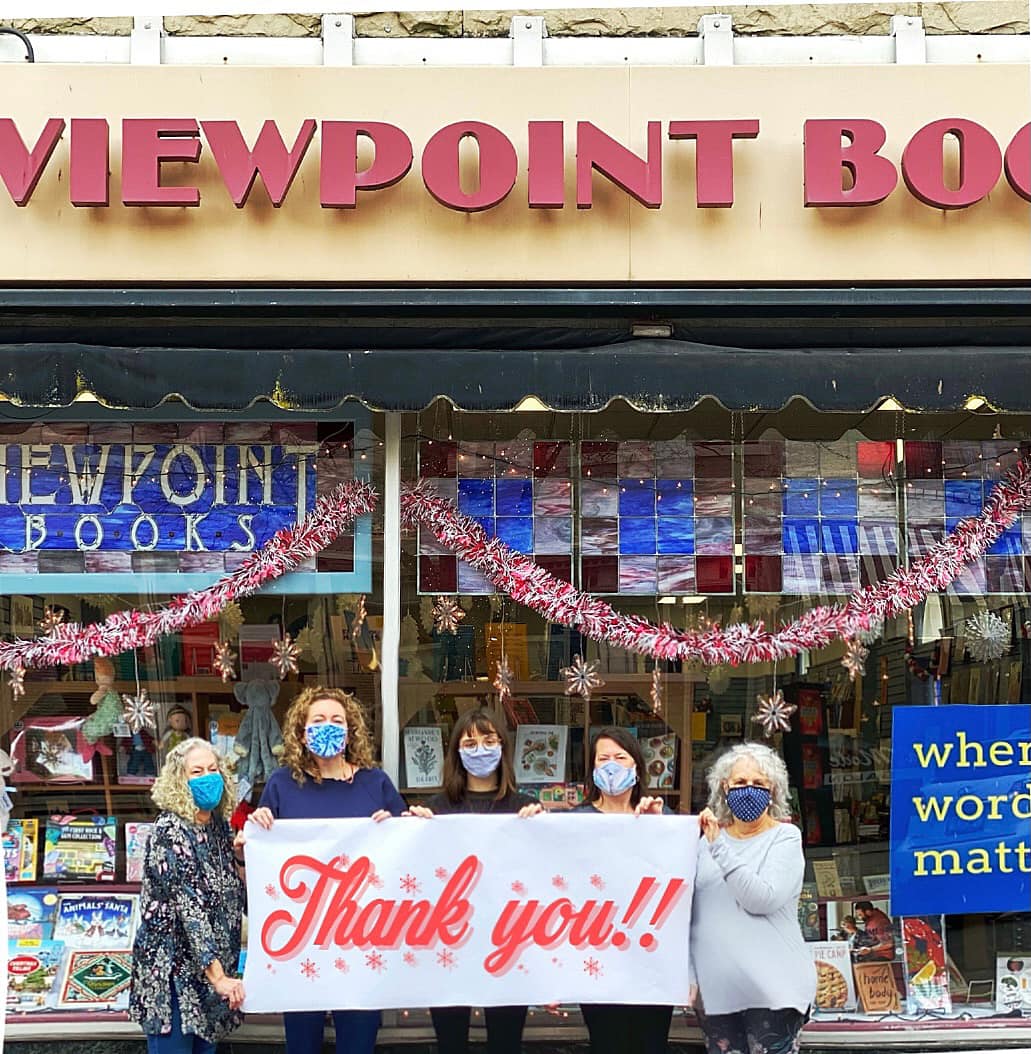
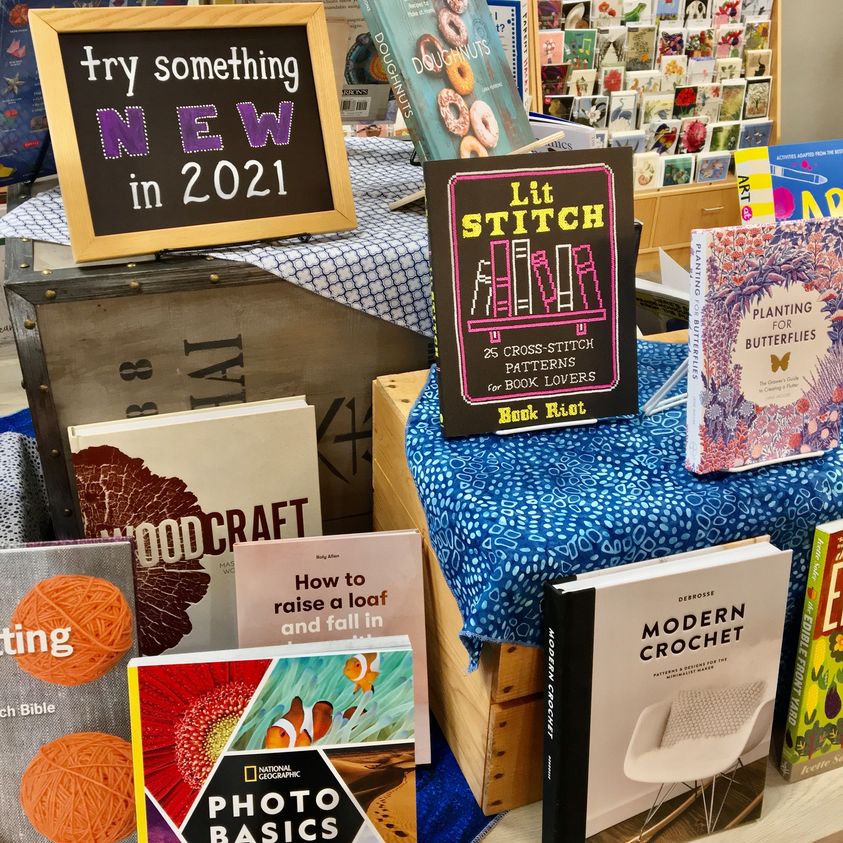
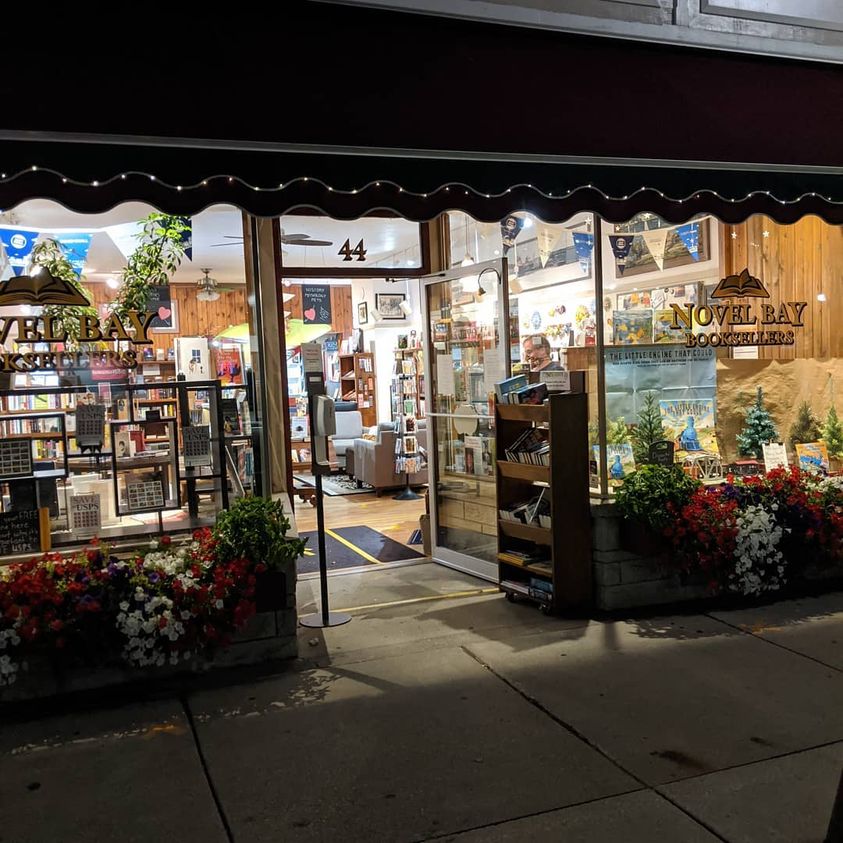
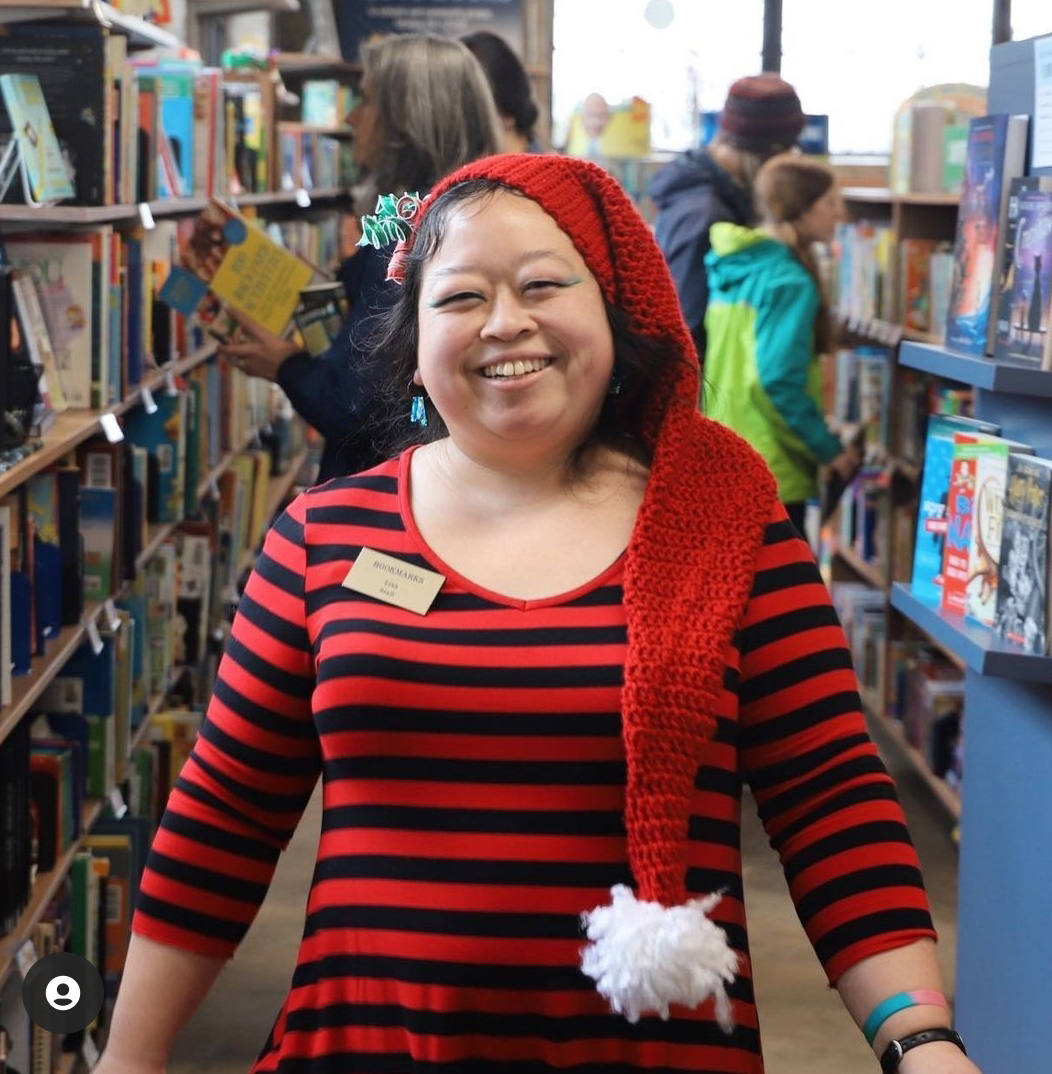
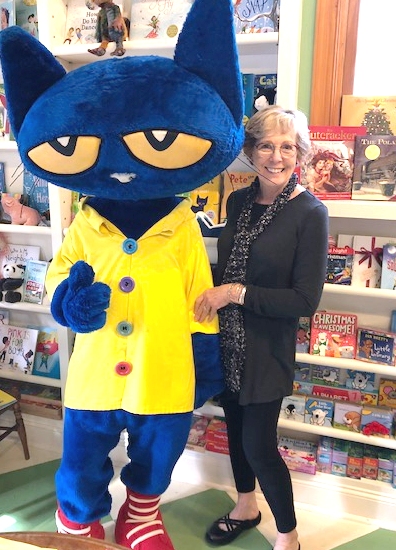
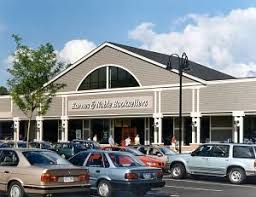 The Barnes & Noble in Westport, Conn., has closed its location in the Post Plaza Shopping Center, where it had been since 1997, and will
The Barnes & Noble in Westport, Conn., has closed its location in the Post Plaza Shopping Center, where it had been since 1997, and will 
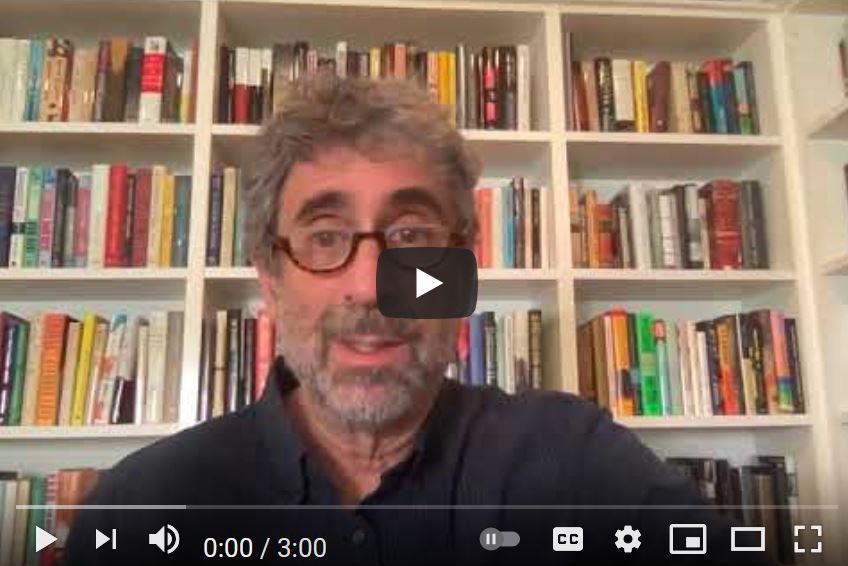 In his video "
In his video "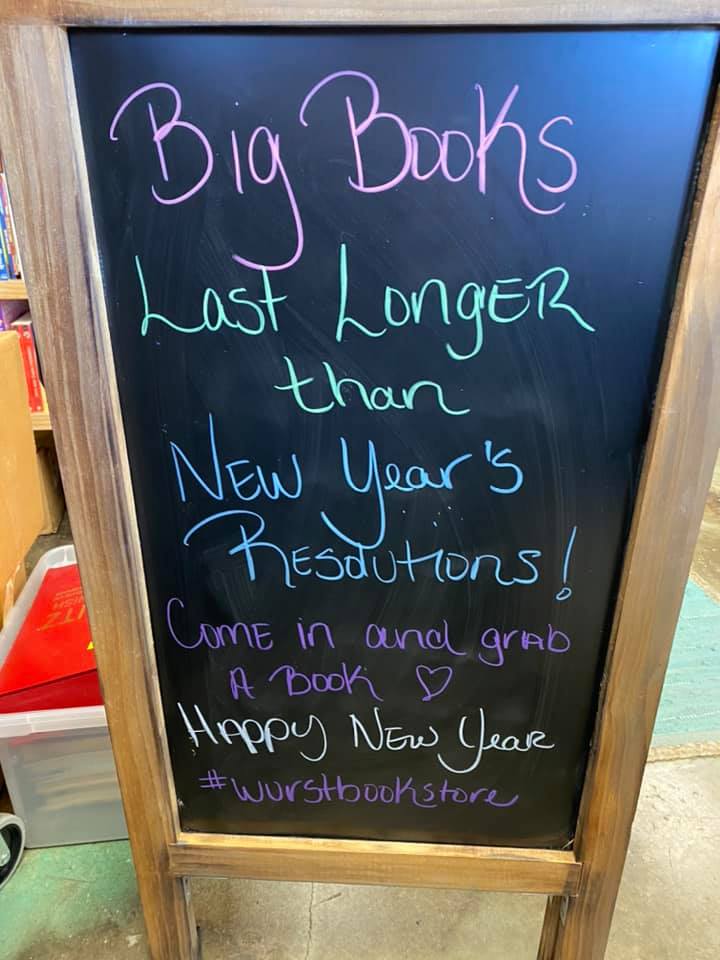
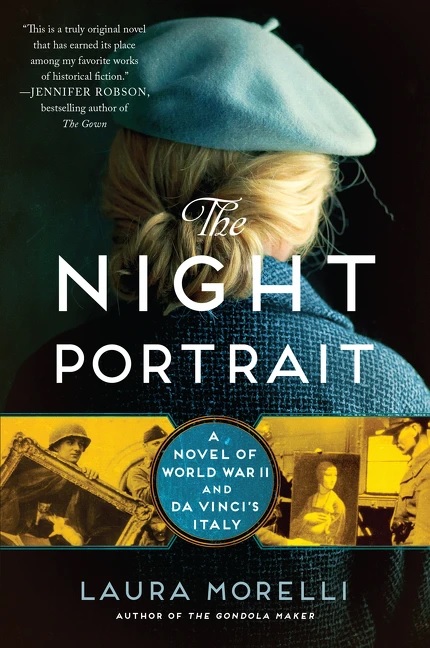 Pennie Clark Ianniciello, Costco's book buyer, has picked The Night Portrait by Laura Morelli (Morrow, $16.99, 9780062993571) as her pick for December. In Costco Connection, which goes to many of the warehouse club's members, she writes:
Pennie Clark Ianniciello, Costco's book buyer, has picked The Night Portrait by Laura Morelli (Morrow, $16.99, 9780062993571) as her pick for December. In Costco Connection, which goes to many of the warehouse club's members, she writes: 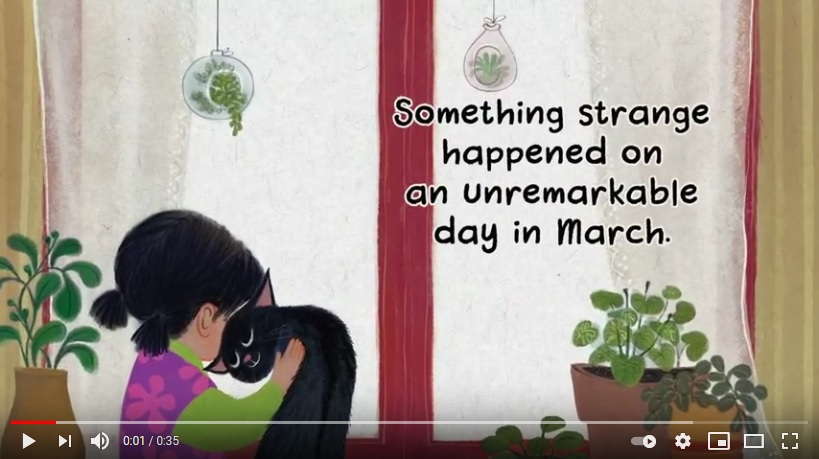 Outside, Inside
Outside, Inside Angie Hockman's first novel, Shipped, is a smart, crackling romantic comedy narrated by the driven and self-deprecating Henley Rose Evans. The 28-year-old shares her single life and one-bedroom Belltown, Seattle, apartment with a gray tabby. Henley is named for the lead singer of the Eagles, yet she considers herself the "furthest thing from a rock star you can find on planet Earth."
Angie Hockman's first novel, Shipped, is a smart, crackling romantic comedy narrated by the driven and self-deprecating Henley Rose Evans. The 28-year-old shares her single life and one-bedroom Belltown, Seattle, apartment with a gray tabby. Henley is named for the lead singer of the Eagles, yet she considers herself the "furthest thing from a rock star you can find on planet Earth."